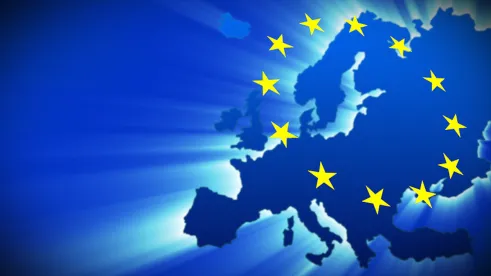On June 1, 2023, the European Parliament adopted amendments to the corporate sustainability due diligence regulation and amending directive. Under the amendments, large companies operating in the EU would be required to conduct due diligence to identify, prevent, mitigate or end negative impacts on human rights and the environment, including in particular pollution, biodiversity loss and environmental degradation, as well as labor exploitation, slavery and child labor. Covered entities would be required to produce climate transition plans to align their business models and corporate strategies with the Paris Agreement’s goal of limiting global warming to 1.5°C above pre-industrial levels. The amendments were adopted with 366 votes in favor, 225 against, and 38 abstentions.
Last month, the Legal Affairs Committee of the European Parliament (known as Juri) approved these new corporate due diligence rules in line with the European Commission’s proposed Corporate Sustainability Due Diligence Directive of 2022.
More entities—and individuals—covered
The proposed rules expand companies’ due diligence obligations beyond their own activities to include their value-chain—including suppliers as well as any entities related to sale, distribution or transportation. Covered companies would have to mitigate any adverse impacts as a result of value chain relationships by changing company business models, providing support to small and medium-sized entities (SMEs) in the value chain, or seeking contractual assurances from partners.
The amendments expand the categories of covered entities from those originally proposed by the EC to include EU-based companies with more than 250 employees and a net annual revenue worldwide of at least 40 million euros; parent companies with more than 500 employees and a net annual revenue worldwide of at least 150 million euros; or non-EU companies with $150 million net annual revenue if at least 40 million euros were generated in the EU.
The rules also impose requirements on directors to implement tailored transition plans aligning their companies with the Paris Agreement. Notably, the largest companies—those with more than 1,000 employees on average—“should have a relevant and effective policy in place to ensure that a part of the directors’ variable remuneration is linked to the achievement of the targets of the company’s transition plan for combating climate change.”
Under the proposal, covered entities would be obligated to engage with key stakeholders, monitor the effectiveness of their due diligence programs and policies, and create a grievance mechanism for concerned stakeholders. How engagement, monitoring and reporting will work, as well as penalties for failure to comply with these requirements, remains unclear.
Financial sector exemptions
Whether and to what extent the financial sector would be subject to the directive has been a much-discussed issue. Financial institutions were originally excluded from the proposed directive, but the adopted amendments require institutional investors and asset managers specifically to comply with the directive, including conducting due diligence on their clients.
Enforcement framework and timetable
Under the amendments, companies that violate these requirements would be sanctioned in the form of “naming and shaming,” removing the companies’ goods from the market, or fine at least 5% of total revenue for EU companies. Failure to comply with the proposed rules could also make companies vulnerable to litigation. Non-EU companies could also be subject to a ban from public procurement in the EU.
The new obligations under the amendments, if adopted, would take effect in 3 or 4 years depending on the company’s size.
Status of the directive
Now that the proposal has been adopted, negotiations with the EU Council and member states will begin. Member states previously reached a consensus on the directive in EU Council at the end of 2022, but certain issues, including the exclusion are for certain financial services entities, are likely to be heavily discussed. Parliament and the EU Council must agree on a position before further negotiations with the European Commission to finalize the directive.
Taking the Temperature: As the European Commission noted in its February 2022 statement announcing the proposed directive, a number of EU member states, including France, the Netherlands, and the UK, already have national ESG due diligence rules. The EU-wide directive is intended to harmonize enforcement and civil and criminal liability frameworks, as well as scale up efforts across the bloc.
Critics on both sides of the debate have weighed in as to whether the proposed directive hits the mark or is overkill that will have a deleterious economic impact. Environmental activists point to what they consider to be gaps in the new rules, including the exemption of some financial institutions and the proposed delays in the enforcement timeline. On the other side, member states and industry representatives have pushed back on the scale and ambition of the current EU environmental regulation drive, as well as the timeframe. Recently, French President Emmanuel Macron called for a pause in EU regulation-making to give member states time to implement existing regulations, noting that the EU is already at the forefront of environmental regulation. Critics of the proposed due diligence directive, in particular, say that the scale of the required oversight across the value chain is unwieldly at best, and at worst, impossible to achieve. Industry groups also cite the potential of the proposed directive to dampen investments and open the floodgates for litigation against companies.
On that last point, as we have previously discussed, a variety of litigation will almost certainly follow, once the final rules have been negotiated and put in place. The increased focus on creating incentives for director engagement is also notable—and an area of debate. As we observed here, the trend towards enforcement of environmental priorities through executive compensation is one that exists beyond the European Union.



 />i
/>i

